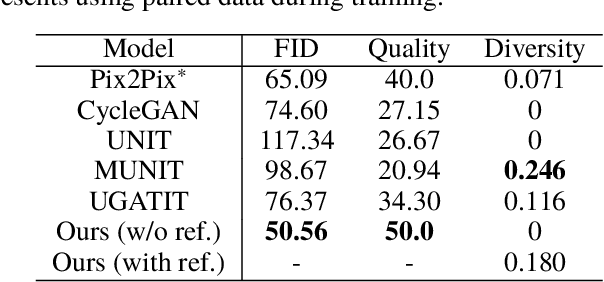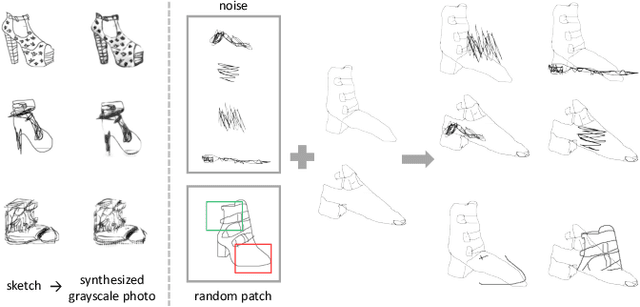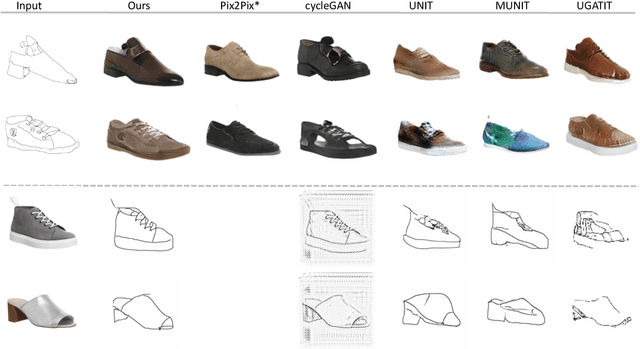An Unpaired Sketch-to-Photo Translation Model
Paper and Code
Sep 20, 2019



Sketch-based image synthesis aims to generate a photo image given a sketch. It is a challenging task; because sketches are drawn by non-professionals and only consist of strokes, they usually exhibit shape deformation and lack visual cues, i.e., colors and textures. Thus translation from sketch to photo involves two aspects: shape and color (texture). Existing methods cannot handle this task well, as they mostly focus on solving one translation. In this work, we show that the key to this task lies in decomposing the translation into two sub-tasks, shape translation and colorization. Correspondingly, we propose a model consisting of two sub-networks, with each one tackling one sub-task. We also find that, when translating shapes, specific drawing styles affect the generated results significantly and may even lead to failure. To make our model more robust to drawing style variations, we design a data augmentation strategy and re-purpose an attention module, aiming to make our model pay less attention to distracted regions of a sketch. Besides, a conditional module is adapted for color translation to improve diversity and increase users' control over the generated results. Both quantitative and qualitative comparisons are presented to show the superiority of our approach. In addition, as a side benefit, our model can synthesize high-quality sketches from photos inversely. We also demonstrate how these generated photos and sketches can benefit other applications, such as sketch-based image retrieval.
 Add to Chrome
Add to Chrome Add to Firefox
Add to Firefox Add to Edge
Add to Edge